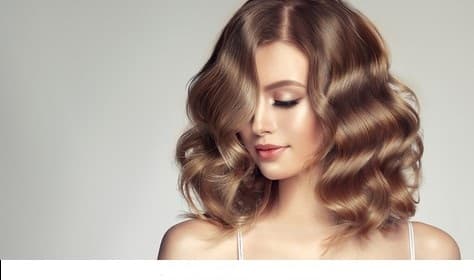Choose the Right Shampoo For Your Hair Type
Let your hair be a statement of pure style, an assertion of your limitless attractiveness, and a manifestation of pure self-love.
Choosing the right products will help you maintain soft and luscious hair with stronger strands and a stunningly elegant appearance. It's natural to be misled by the millions of items on the store in today's modern global and digital age, with the emergence of unique substances for multi-purpose effects. Some people might be interested in learning more about remarkable phenomena that are making headlines both locally and internationally.
However, the most important and fundamental requirement for your hair is the usage of a good shampoo. When our forefathers had itching or acute irritability in their scalp regions, they relied on traditional home treatments from their own pantry, such as rubbing apple cider vinegar, coconut oil, or even milk. We've developed into various sorts of shampoos, conditioners, and a variety of other items as a result of decades of innovations and inventions.
If you're unsure which sort of shampoo is best for your scalp, gather as much information as possible on the most common types of shampoos on the market and choose the ones that work best for your scalp and hair. We've compiled a comprehensive and succinct list of the same.
Shampoo for Clarification (for polished and clean dirt-free hair) This type is better ideal for persons who find it difficult to adapt to product build-up in their voluminous hair. It is similar to the shampoo you use on a regular basis but much more intensive. Water makes up a large portion of the shampoo's makeup (about 70-80%), and the active chemicals are generally heavy replacements like Surfactants, which are simply soapy components that clean your hair of residual oils, waste, filth, foreign particles, debris, and so on.
Surfactants such as chlorides, bromides, ammonium sodium Laurel sulfate, acetyl fatty alcohols, and others are commonly used. When your hair seems weighed down and your head feels heavy after using a lot of hair products, it's time to apply a clarifying shampoo. One thing to keep in mind is that using this type of shampoo without a clear need or prescription from your doctor can cause your hair to become dry and frizzy.
Shampoo that adds volume (for an additional bounce to your hair) These shampoos are responsible for adding bulk or volume to your previously thin, sensitive, and drying hair, as the name suggests. They work by allowing your hair cuticles to open up and stimulating hair growth in certain areas. It's an excellent product to use if you want to add volume to your hair while also making it look fantastic with your dress or makeup.
Thickening shampoos work in a similar way, adding not just bounce but also a smooth, long-lasting shine to your hair locks. Some shampoos marketed as "extreme volume" contain an API (active pharmaceutical ingredient) protein that strengthens and protects hair from the roots to the tips.
Shampoo for Everyday Use (for regular hair washing processes)
Once again, as the name implies, these are intended for daily hair washing usage only for the purpose of cleansing, having active cleansing elements that contribute to healthy, moisturized, and shiny hair. These are typically free of soap and alkaline substances, making them a gentler daily option.
They are capable of absorbing moisture in dry hair, boosting volume, and offering comprehensive nourishment just by using them frequently. These milder shampoos are recommended for people who have severe sebum sensitivity or who wash their hair more frequently than usual. They are similar to baby shampoos due to the softer nature of the surfactants used in their formulation.
Shampoo with Antibiotics (for sensitive scalp and other associated conditions)
Patients seeking scalp or hair-related therapy may benefit from medicated shampoos, which are designed to treat such issues. The primary goal of their formulation is to cure dandruff, fungal or bacterial infections, itching, redness, spots, scaling, psoriasis, head lice, inflammatory suppression, and so on. After your attending physician or dermatologist has prescribed the prescription, they may be deemed OTC (over-the-counter) products.
Coal tar, ketoconazole, chlorinated phenol, silicic acid, pyrithione zinc, and other chemicals are preferred in shampoo. The former is in charge of lowering oil production, which would otherwise stimulate fungal development and inflammation reduction. The others assist in reducing scalp accumulation and associated issues.

No comments:
Post a Comment